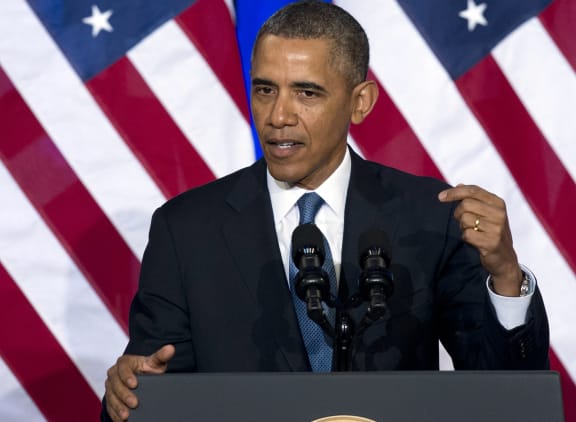US president Barack Obama has announced a ban on US eavesdropping on the leaders of allies and began reining in the storage of a vast collection of telephone data.
In a major speech, Mr Obama set out a series of reforms triggered by former US spy contractor Edward Snowden's revelations about the monitoring activities of the National Security Agency (NSA).

President Obama set out reforms to the US surveillance programme in a speech on Friday. Photo: AFP
Media outlets have reported this week that the NSA gathers nearly 200 million text messages a day from around the world and has put software in almost 100,000 computers allowing it to spy on those devices.
Mr Obama promised the United States will not eavesdrop on the heads of state or government of close US friends and allies, which a senior administration official said would apply to dozens of leaders.
Relations with the US and Germany had become strained last year when it was revealed the NSA had monitored the mobile phone of German Chancellor Angela Merkel. Brazilian President Dilma Rousseff postponed a state visit to Washington in protest at the NSA spying on her email and cellphone.
"The leaders of our close friends and allies deserve to know that if I want to learn what they think about an issue, I will pick up the phone and call them, rather than turning to surveillance," Obama said.
Among the list of reforms, Mr Obama called on Congress to establish an outside panel of privacy advocates for the secret Foreign Intelligence Surveillance Court that considers terrorism cases.
Phone data storage
One of the biggest changes will be an overhaul of the government's handling of bulk telephone metadata - lists of millions of phone calls made by Americans that show which numbers were called and when.
Mr Obama decided that the government should not hold the metadata and said the programme would be ended as it currently exists.
While a presidential advisory panel had recommended that the bulk data be controlled by a third party such as the telephone companies, Mr Obama did not offer a specific proposal for who should store the data in the future.
Attorney General Eric Holder and the intelligence community are to report to the president before the programme comes up for reauthorization on 28 March on how to preserve the necessary capabilities of the programme, without the government holding the metadata. Administration officials will consult relevant committees in Congress on how to best handle the material.
WikiLeaks founder Julian Assange told CNN there were few concrete reforms in the president's announcement of new constraints on the spying programme.

